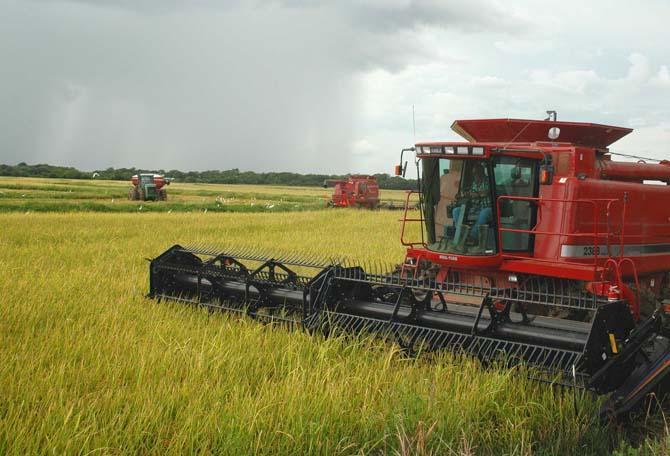With Louisiana’s rice season less than two months away, experts from the University’s AgCenter are assisting farmers throughout January to prepare for the 2014 season.
The AgCenter rice clinics took place in various areas throughout the state this month, including Bunkie, Welsh, Crowley, Ville Platte and Kaplan. A final meeting will take place Jan. 29 in Rayville.
Steven Linscombe, director of the Rice Research Station, said while farmers will face the usual challenges this year such as potential hurricanes, droughts and excessively high temperatures, there is an even bigger challenge ahead.
Farmers want Congress to approve a new farm bill to help farmers know what the rice production playing field will look like during the next few years, Linscombe said.
The uncertainty surrounding this bill affects multiple layers of this season’s farming production, said AgCenter professor Michael Salassi.
“This uncertainty not only affects individual farmers’ production plans for the coming year, but also significantly impacts the amount of operating crop loan financing which can be obtained to finance the ever-rising costs of producing agricultural crops,” Salassi said.
Linscombe has participated in numerous rice clinics during his tenure. Some of the longest-held clinics include the Evangeline Parish meeting in Ville Platte, which was the 54th annual clinic, and the Vermilion Parish meeting in Kaplan, which was the 42nd annual rice clinic, he said.
Linscombe said he is certain that through the decades, the rice clinics have greatly benefited Louisiana rice farmers.
“We have many producers that often comment that the research and extension work conducted by AgCenter scientists have kept them in the business,” Linscombe said. “This is one opportunity each year for these farmers to be updated on all the new technologies, varieties, etc. across all disciplines that impact their production programs.”
Salassi said the two divisions of the University AgCenter, the Louisiana Agricultural Experiment Station and the Louisiana Cooperative Extension Service, have been holding agricultural education meetings for farmers for decades.
“Louisiana is a major producer of rice in the U.S., and these education meetings have long been held to educate growers on the most up-to-date farming practices and production alternatives,” Salassi said.
Other topics covered in these meetings include expected yield data on rice varieties available for planting and production and optimal fertilization rates to maximize net returns, he said.
The rice clinics also serve to inform farmers of insect and plant disease problems they might face and how to control them, as well as information about the rice commodity market in the region and nation and its affect on the farm commodity market price, Salassi said.
University AgCenter holds clinics for rice farmers
January 15, 2014





